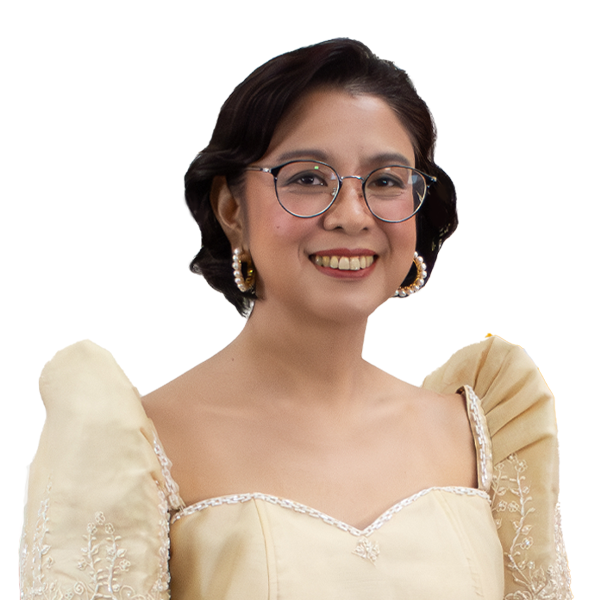 Students and academics get their copies of the book The ASEAN Drama: Half a Century and Still Unfolding, signed by the authors during the book’s launch held at UP Diliman recently. Inset shows the cover of the book. (Photos by Meg Matias and Ped Garcia)
Students and academics get their copies of the book The ASEAN Drama: Half a Century and Still Unfolding, signed by the authors during the book’s launch held at UP Diliman recently. Inset shows the cover of the book. (Photos by Meg Matias and Ped Garcia)
The Development Academy of the Philippines, through its Council of Fellows, and the University of the Philippines, through the latter’s Center for Integrative and Development Studies, recently launched a collaborative book that looks more deeply into the Association of Southeast Asian Nations’ political, economic, civil society, community and organizational dynamics and issues.
Entitled The ASEAN Drama: Half a Century and Still Unfolding, the book was cited by DAP President and Chief Executive Officer Elba S. Cruz as “an excellent contribution of the UP and the DAP” to the celebration of the Philippines’ chairmanship of the ASEAN as well as the commemoration of the ASEAN’s 50th anniversary. The 208-page book examines the different facets of the ASEAN in terms of economic performance, civil society engagement, political power relations and organizational dynamics, community-building efforts, and other dilemmas and issues confronting the organization of 10 nations, whose total population reaches 625 million people.
An offshoot
The book was actually an offshoot of a previous book on the ASEAN, ASEAN Integration: Status, Issues, and Prospects, whose launch in 2016 provided an occasion to see the need for a deeper analysis and a broader ASEAN study incorporated in a book that would come out in time for the country’s hosting of the ASEAN Summit in April 2017 and the ASEAN’s 50th anniversary in August 2017.
The book was primarily authored by two ASEAN experts, former Senator Dr. Orlando Mercado, an eminent fellow of the DAP and incoming Dean of its Graduate School of Public and Development Management, and Dr. Filemon Uriarte Jr.
Mercado formerly held the position of permanent Philippine representative to the ASEAN and also held the Defense Secretary’s post during the Estrada administration. Uriarte, meanwhile, was a director at the ASEAN Secretariat before being appointed as Science and Technology Secretary also during the Estrada administration.
More authors
Other authors of the book, which was edited by UP-CIDS Executive Director Dr. Edna Co and former DAP Executive Fellow Dr. Carlos Tabunda Jr., are former ASEAN Secretariat consultant and UP public administration professor Jose Tabadda, Center for People Empowerment in Governance Chair and UP political science professor Dr. Temario Rivera, former Institute for Strategic and Development Studies Executive Director and UP political science associate professor Herman Joseph Kraft, and former UP Department of Political Science Chair Dr. Jorge Tigno.
Dr. Cruz, who took over the DAP presidency in April, said that while the DAP was still in the process of reviewing its programs and realigning them with the developmental goals of the Duterte administration, she assured the UP of its continuing support and cooperation, expressing the desire to “explore other avenues of collaboration” aside from research and book publication as the country further strengthens its relationship with its ASEAN neighbors.
Upholding the ASEAN commitment
The DAP chief executive said that with the country’s successful hosting of the 30th ASEAN Summit last month, President Duterte was able to uphold the ASEAN’s commitment to peace, prosperity and stability in the region as he, Dr. Cruz said, “successfully navigated the political dynamics of the region in terms of not aggravating what is admittedly a sensitive situation in the West Philippine Sea and neighboring waters.”
Cruz expressed the hope that the economic reforms being espoused by Duterte will contribute to the development of the countryside, including Mindanao. She said that while the DAP is popular for its training facilities in Tagaytay, hardly anybody knows it has an extension office in Mindanao. “One of my visions for the DAP is to transform the DAP Mindanao office into a full-fledged academic center capable of mirroring, at least, the facilities, course offerings, and the student population of DAP Tagaytay,” she said. “With so much promise through economic reforms and the collaboration of our ASEAN partner nations, I’m very confident that such vision would be fulfilled in due time. Who knows, our next book launching, with UP as co-publisher, could be held at the new DAP sa Mindanao.”




